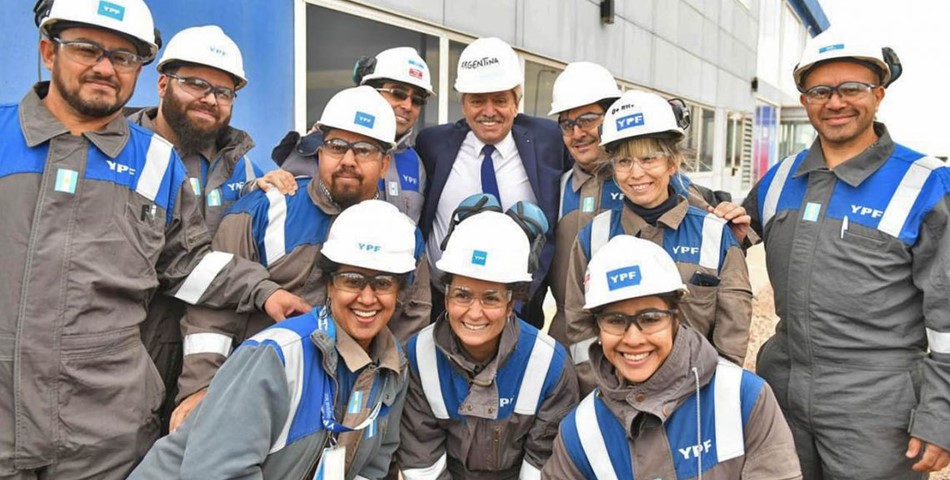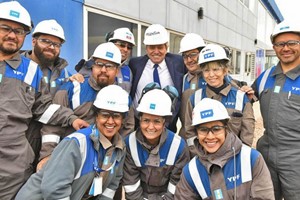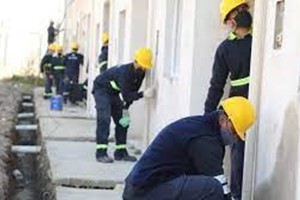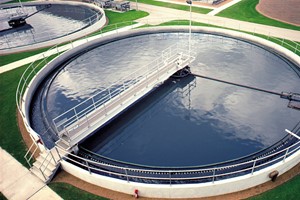President Alberto Fernández on Thursday launched a tender for construction of an enormous gas trunk pipeline beginning at Vaca Muerta gas field. What is the ‘Gasoducto Néstor Kirchner’ and why is it so important for Argentina?
Argentina's government on Thursday launched the tender for the construction phase of a gas pipeline megaproject that will eventually extend more than 1,000 kilometres (621 miles), running from the southwest province of Neuquén to north of Buenos Aires.
If completed, the Gasoducto Néstor Kirchner, or Néstor Kirchner Pipeline, would be the largest natural gas project in Argentina in the last four decades.
Its aim is nothing less than the transformation of Argentina's fuel transport capacity for both domestic use and exports. Experts say it could make the country a major energy producer.
The project, however, will take some time, though it comes at a time when worldwide energy costs have shot up due to Russia's invasion of Ukraine. The tender will be launched in May, with a decision due in July. The first stage of the project is due to cost US$1.5 billion, beginning in August and ending in 2024.
In an official ceremony at the Complejo Loma Campana YPF site at the Vaca Muerta deposit in Neuquén Province, President Fernández celebrated "the start of work to create the Néstor Kirchner Pipeline."
"Gas is the transition energy that the world has decided to have in order to move towards renewable energies," he said, declaring that "Vaca Muerta is more alive than ever.”
"Today there is a geopolitical situation that makes it possible for Argentina to accelerate the development of the energy sector. We face an opportunity that requires increasing infrastructure capacity, such as this pipeline," said Economy Minister Martin Guzman in a recorded message played at the event.
The first section of the Gasducto Néstor Kirchner, named after the late former president who preceded his wife in office, will extend 558 kilometres from Tratayén, Neuquén Province to Salliqueló, Buenos Aires Province. It would increase gas supply by 22 million cubic metres a day, said the government.
A second section will extend another 467 kilometres northwards, reaching San Jerónimo. It will permit the natural gas to reach southern Santa Fe Province, penetrating the major urban and industrial centres of Central and Northern Argentina, as well as opening up the possibility of exporting to Brazil and Northern Chile.
In total, the new pipeline will increase Argentina's gas supply by more than 40 million cubic metres a day "supplying urban centres and industry in the centre and north of the country and giving the opportunity to export to Brazil and Chile," the Presidency said in a statement.
"The first objective of the pipeline is to replace imports, to replace all LNG [liquefied natural gas], and the second is to generate exportable amounts," said Energy Secretary Darío Martínez, who pointed out that last summer Argentina began exporting gas to Chile for the first time in 15 years, having reversed falls in production.
The construction of the Néstor Kirchner pipeline has ignited great expectations as representing another milestone along the road to achieving sovereignty as the answer to guaranteeing gas supplies for the winter of 2023.
The president’s visit on Thursday coincided with the 10th anniversary of the 2012 “nationalization of YPF,” when Argentina’s Chamber of Deputies approved the law declaring fossil fuel self-sufficiency to be of “public utility” and expropriating 51 percent of the shares of YPF oil and gas, under the leadership of then-president Cristina Fernández de Kirchner.
In a nod to Fernández de Kirchner, his vice-president with whom relations are frayed, the president praised her decision to put the energy firm "under state management, signing an agreement with Chevron in which few trusted.”
Thursday’s inauguration was attended by YPF top brass, national and provincial political leaders, and businessmen of the energy sector like Pampa Energía president Marcelo Mindlin, who said that his construction company Sacde is prepared to participate in the tender. Techint have also confirmed their interest.
“The new gas pipeline will change Argentina, the province of Neuquén and companies like Pampa, which are ready to invest,” Mindlin told journalists this week.
Construction on the pipeline is due to start this August, from which point the growing volume of imports in months of high consumption will already start to be cut with the greater production of unconventional gas from Neuquén. The pipeline is already drawing investments from companies in the sector.
Argentina’s abundance of unconventional gas while lacking the capacity to transport it is one of the country’s great paradoxes. The current system of gas pipelines dates back between 40 and 50 years and becomes saturated in winter months, a bottleneck costing billions of dollars a year in imports.
To meet peak demand in the coldest months, Bolivian gas or liquefied natural gas (LNG) via ships is imported at high international prices which have soared in recent months.












